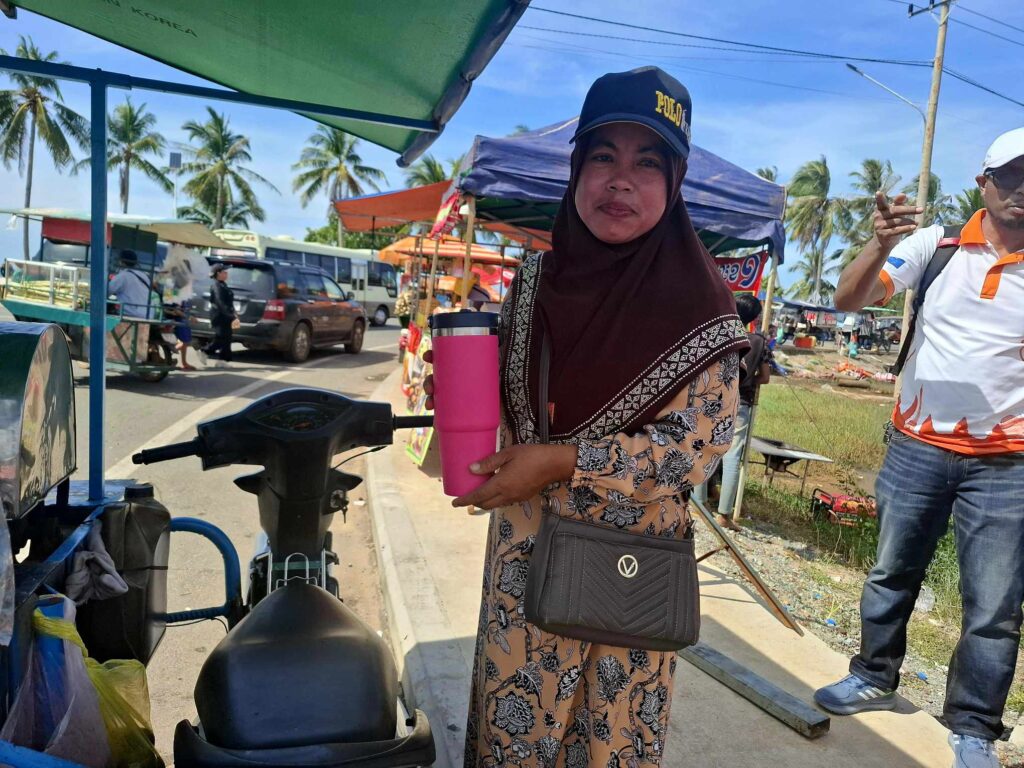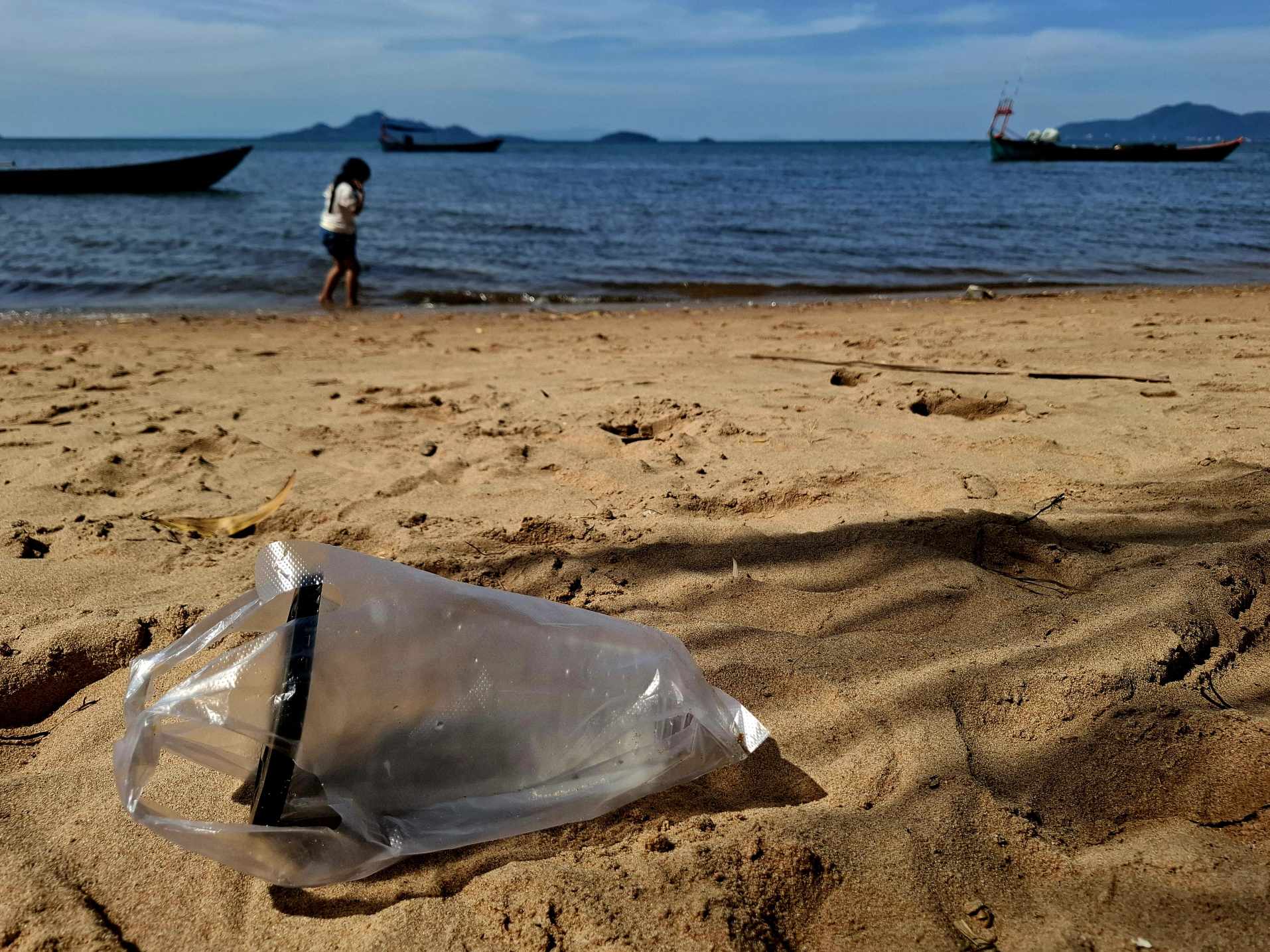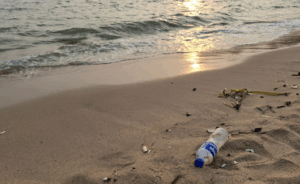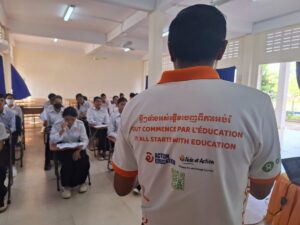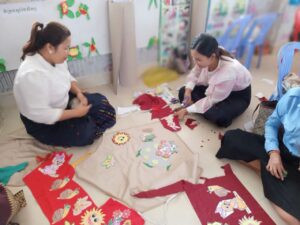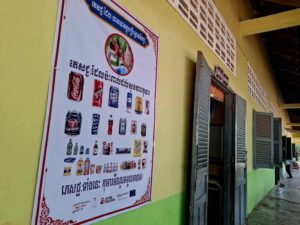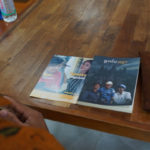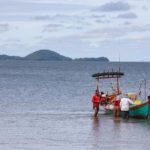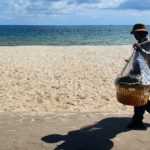Aware of the ecological toll of single-use plastics, local food stalls and small vendors are taking steps to protect Cambodia’s ecosystems. Some are offering sustainable alternatives, such as reusable lunch boxes, refillable bottles, and straw bags, to their customers.
Cambodia’s stunning coastal landscapes are under threat from the pervasive issue of single-use plastics. These plastics dominate local markets, food stalls, and daily routines, turning vibrant community hubs into sources of pollution.
The problem affects Cambodia’s natural environment and local economy. Plastic waste poisons marine life, destabilizes ecosystems, affects fishing communities and erodes the natural beauty that draws tourists to Cambodia’s shores.
Single-use plastics are not biodegradable; they fragment into microplastics that persist in the environment for centuries. In marine ecosystems, plastic waste is often mistaken for food by fish, turtles, and seabirds, leading to injury, starvation, or death.
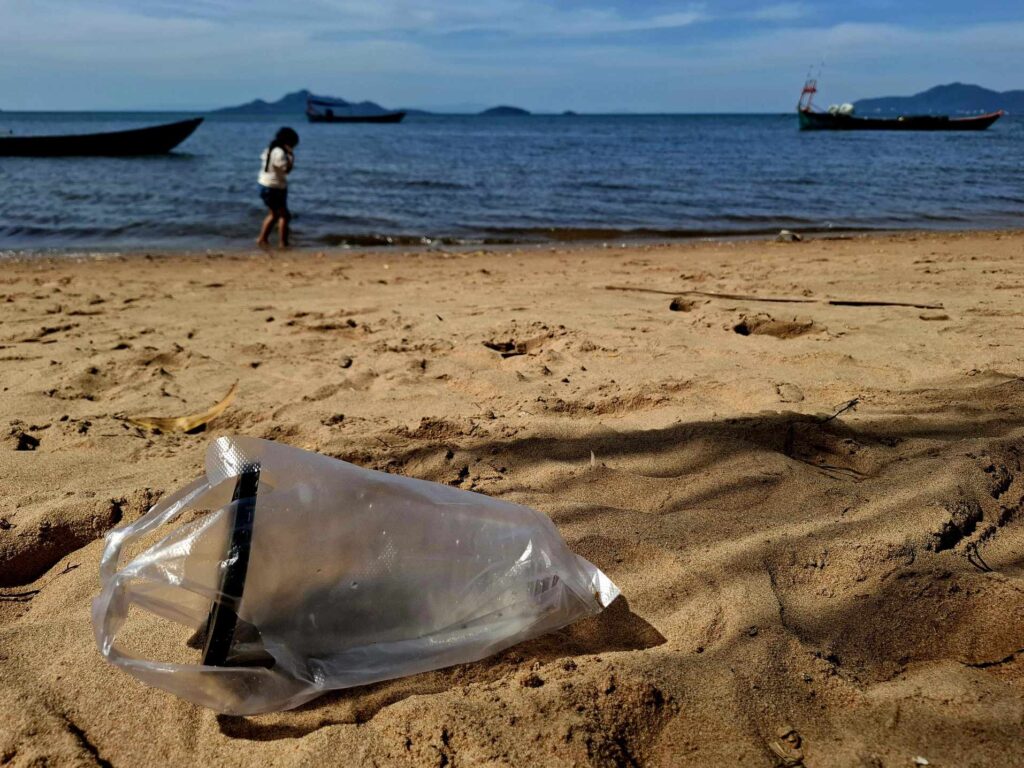
Coral reefs, which support diverse marine species, are smothered by plastic debris, disrupting their growth and resilience. These disruptions ripple through the food chain, ultimately affecting local fishing communities that depend on healthy marine ecosystems for their livelihoods.
Ecosystems and Economic Realities
In local markets and food stalls, most vendors sell takeaway food and face economic challenges. Today, single-use plastics are the norm – practical, cheap, and expected by customers. For small vendors, meeting these demands often feels unavoidable, as they balance tight margins and the desire to satisfy their clientele.
However, this reliance on plastics comes at a high ecological cost, threatening the very resources that sustain these businesses, such as those on Angkol Beach in Kep. Efforts to raise the awareness of local communities about the harm caused by plastics have had some success, but an important piece of the puzzle should not be missed: engaging the customers who drive demand.
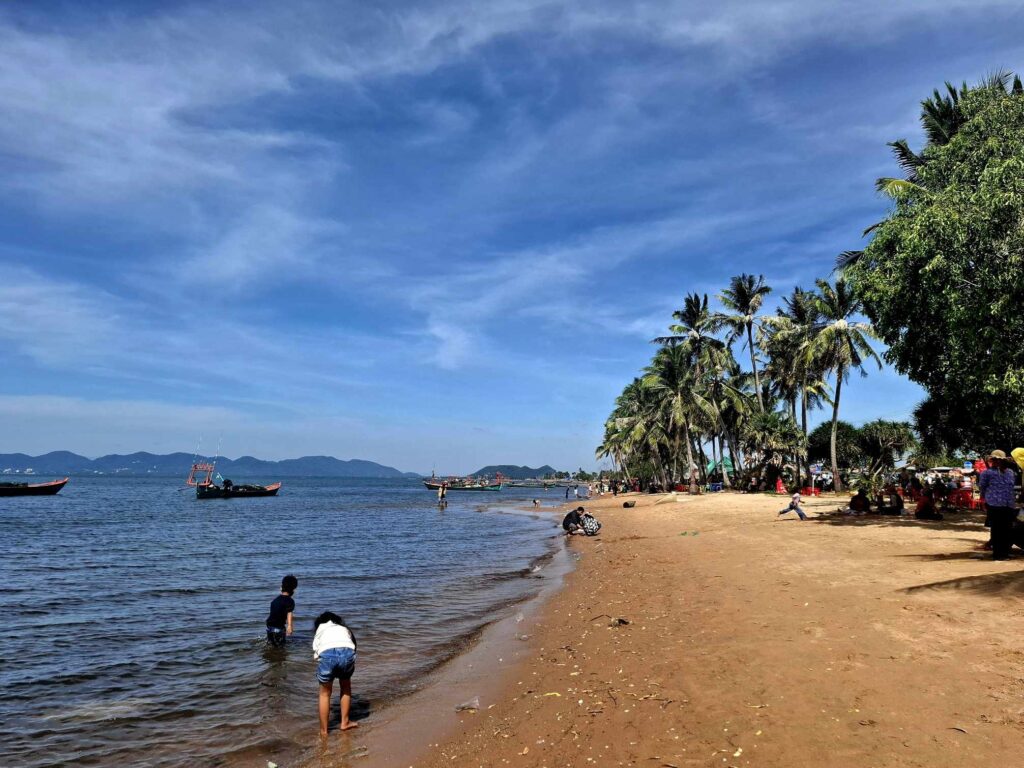
Without active participation from consumers, vendors face an uphill battle in adopting sustainable practices.
Turning a Challenge into an Opportunity
In the context of the CO-SAVED project which is co-funded by the EU, Action Education / Aide et Action (AEA) supports local initiatives such as beach clean-ups and, also tackles the issue at its source — by reducing single-use plastics. Part of the solution lies in supporting both vendors and customers.
At the forefront of this are reusable containers, including traditional Cambodian metal lunchboxes and refillable bottles. These items offer practical alternatives to single-use plastics and symbolize a community commitment to reducing waste.
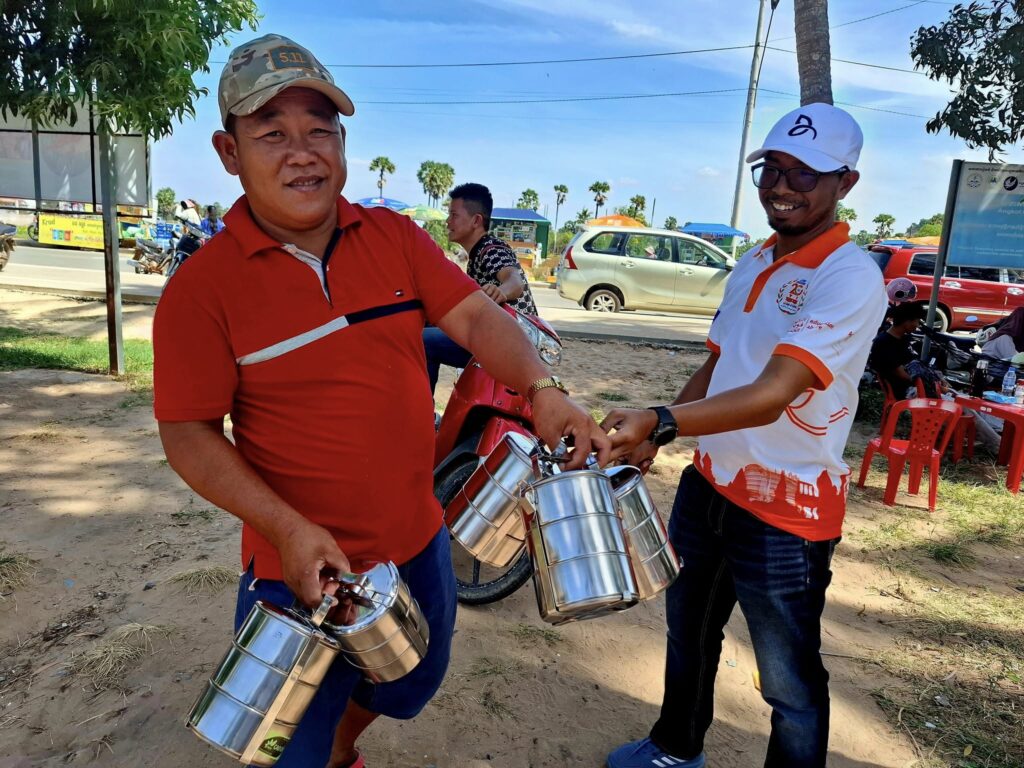
AEA is providing small vendors with reusable containers to sell, along with posters and “No Plastic” stickers. These tools enable vendors to advocate for the environment while sustaining their businesses. The stickers prompt a simple but powerful question: “Do you have a reusable container?” – encouraging customers to make a conscious choice.
Vendors like Meng Hoan and Meas Tae, selling seafood on Angkol Beach everyday, are embracing these changes. “We understand the problem of plastic for the environment, our health and our business. If the beach is clean, it attracts more customers.” In addition to lunchboxes for sale and stickers, AEA previously provided the family with a food cart through the CO-SAVED project, aiming to increase their income potential.

Making reusable items affordable and accessible in local markets, AEA is working to ensure sustainability is within reach for everyone. Their efforts not only reduce plastic waste but also attract eco-conscious customers, creating a ripple effect of environmental awareness.
The Dream of a Plastic-Free Beach
Local vendors gradually adopting sustainable practices become champions of change, demonstrating that reducing plastic waste is achievable through collective action. Each reusable container used represents a step toward healthier ecosystems, cleaner beaches, and a Cambodia where natural beauty thrives.
The journey to a plastic-free future is challenging but filled with opportunity. Every conscious choice made today contributes to preserving Cambodia’s natural heritage for future generations.
Together, vendors and customers on Angkol beach can protect the environment, transform habits, and ensure a sustainable legacy for the planet.
